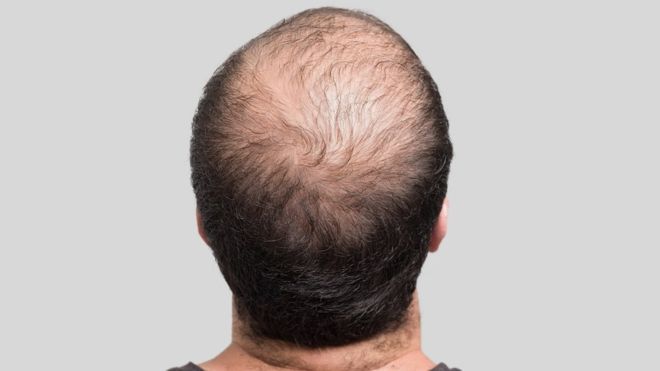
A potential new cure for baldness has been discovered using a drug originally intended to treat osteoporosis.
Enhanced hair growth is a side-effect of a different drug, cyclosporine A, used to treat autoimmune diseases.
And researchers found it also inhibited a protein, SFRP1, that blocks a molecular pathway, WNT, vital for the growth of many tissues, including hair.
The new cure uses another drug, Way-316606, that was designed to inhibit SFRP1 as treatment for osteoporosis.
Project leader Dr Nathan Hawkshaw said it could “make a real difference to people who suffer from hair loss”.
Only two drugs are currently available to treat balding (androgenetic alopecia):
- minoxidil, for men and women
- finasteride, for men only
Neither is available on the NHS and both have side-effects and are not always very effective, so patients often resort to hair transplantation surgery instead.
The research, published in PLOS Biology, was done in a lab, with samples containing scalp hair follicles from more than 40 male hair-transplant patients.
And Dr Hawkshaw told the BBC a clinical trial would be needed to see if the treatment was effective and safe in people.
What causes hair loss?
Hair loss is a daily occurrence and generally nothing to worry about. Some types are temporary and some are permanent.
You should see a doctor because of:
- sudden hair loss
- developing bald patches
- losing hair in clumps
- head itching and burning
- worry about hair loss
A British Association of Dermatologists spokesman told the BBC: “This is a very interesting study.
“As the researchers say, hair loss is a common disorder and it can cause considerable damage to emotional health, including loss of self-esteem and confidence.
“That said, more research will need to be done before it can be used by people with hair loss.
“For individuals with hair loss, treatments can be very hit and miss. There isn’t one which is universally effective.
“For that reason new treatments are exciting as they give people more treatment options that may be effective.”
























